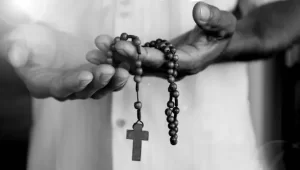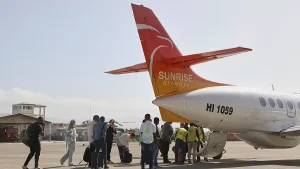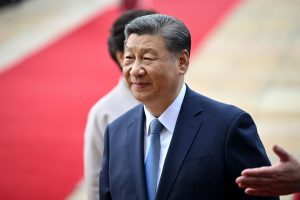Disbelief as Nigeria urges prayer to end food shortages
3 min read
Public Outcry as Nigeria’s Agriculture Ministry Urges Staff to Pray for Food Security
A recent memo from Nigeria’s Ministry of Agriculture has sparked widespread criticism and disbelief after staff were urged to pray and fast to help the country tackle its growing food crisis.
The internal communication, sent by the ministry’s human resources department, called for a “solemn prayer session” and a three-week Monday fast aimed at boosting food security in Africa’s most populous nation.
Nigerians React with Disbelief
News of the memo quickly went viral, triggering public frustration over what many see as a tone-deaf response to Nigeria’s severe economic and food challenges.
On social media, critics mocked the move, with some suggesting the ministry be turned into a church or mosque, while others lamented: “Nigeria is a joke.”
For many Nigerians struggling to afford basic staples, the prayer call appeared to trivialize the real hardship being faced.
Ministry Backpedals on Intent
In response to the backlash, the Ministry of Agriculture issued a press release on Saturday, attempting to downplay the directive. It stated that the prayer and fasting program was not an official policy to combat food insecurity but rather an effort to promote staff wellbeing.
The release likened the initiative to the ministry’s other wellness efforts, including monthly aerobic sessions, a staff gymnasium, and routine health check-ups.
Food Crisis Deepens
Nigeria is currently facing its worst economic crisis in a generation, worsened by sweeping policy reforms introduced by the current administration since 2023.
According to United Nations data, at least 4.4 million Nigerians are experiencing acute food shortages. Rising inflation has driven the cost of food staples like yams, rice, and tomatoes to unaffordable levels. In some areas, yam prices have quadrupled over the past year.
The food inflation crisis was among the key drivers of mass protests across the country last year, with citizens demanding urgent economic reforms and support.
Critics Accuse Government of Avoidance
For many, the call for divine intervention is seen as a symbol of government inaction and an unwillingness to tackle systemic issues like poor infrastructure, lack of mechanized farming, and rising input costs.
“Nigeria is facing a practical, not a spiritual, problem,” one online commentator posted. “You don’t pray tractors and irrigation systems into existence.”
Government Lists Interventions

Despite the backlash, officials have defended their record, listing several measures taken to support agriculture. These include the distribution of over 1,000 tractors, more than two million bags of fertilizer, and initiatives aimed at supporting smallholder farmers.
However, many analysts argue that these measures have fallen short of making meaningful impact due to poor implementation, corruption, and limited access to financing and markets.
Mixed Reactions Persist
While some religious communities have welcomed the call to prayer, urging unity and spiritual reflection during hard times, others insist that prayer must be accompanied by policy action and investment in food production and supply chains.
As the economic strain continues, the debate highlights a deeper frustration among Nigerians about the gap between public leadership and citizen reality.





